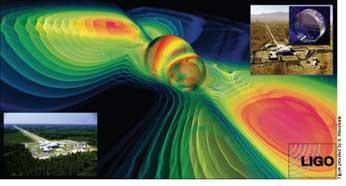Long ago predicted by Albert Einstein on the basis of general relativity, the existence of gravitational waves is still an active topic of research. Ripples in space time that may provide clues about the origins of our universe, gravitational waves are extremely weak and difficult to detect. Dr. Mavalvala's research is at the forefront of new detectors that are part of the Laser Interferometer Gravitational-Wave Observatory (LIGO), a major collaborative project operated by Caltech and MIT. Her work is revealing new insights about the role of quantum effects: the sensitivity of the upcoming generation of interferometric gravitational wave detectors is expected to be predominantly limited by quantum optical noise. Dr. Mavalvala will explore the origins of these quantum limits, and describe experimental progress toward circumventing them.

